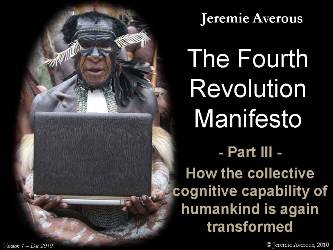How a mining company created huge value by publishing the most secret data a mining company can hold: all the geological data of the mine.
The story is now classical and counted in most books on the new collaboration tools. But it is worthwhile mentioning it and the deep lessons it holds.
Goldcorp was struggling. Its mine in Canada was loosing money, prospects were dim. Hope of finding new gold was there, geological investigations ongoing, but nobody was sure where to drill. Geologists did not agree. A long and costly additional geological investigation program was yet to come.
The CEO did not come from the mining industry. Attending a seminar in a business school, he had the following idea: and what if I was putting all the geological data public and launch a worldwide contest to advise where to find the gold?
That’s a hell of an unconventional idea in the natural resources industry: geological data is the core of the value of the company. It is the most secret of secrets.
Still the CEO went ahead, against all oppositions. All the available geological data of the mine was put on the web – more than 400 Megabyte of it. People from various industries responded to the contest, coming up with incredibly innovative ideas, new 3D visualization tools. Some of these ideas even led to new ventures. Although the winners were compensated with some money, the main value for them was the exposure and the publicity which allowed them to pursue their own projects and ventures.
 They allowed the company to save millions of dollars of geological work and indeed led GoldCorp to find new deposits of gold and ultimately become one of the wealthiest gold mining companies in the industry. The CEO was sitting on a gold mine!
They allowed the company to save millions of dollars of geological work and indeed led GoldCorp to find new deposits of gold and ultimately become one of the wealthiest gold mining companies in the industry. The CEO was sitting on a gold mine!
What are the deep lessons of this story?
Value in the Industrial Age was often based on holding to intellectual property and other proprietary knowledge, and keeping it secret.
In contrast, value in the Collaborative Age is making this knowledge public and motivating the world to enhance and transform it for the benefit of the organization.
It is not just publishing proprietary knowledge – that’s easy. It is making sure that a network of followers is deeply motivated to crunch it, transform it, experiment with it, and create something awesome. That’s the hard part. That’s the differentiator.
Creating the network of followers is key. It involves giving away to receive later. It requires a compelling purpose that motivates the followers. It is a long term endeavor.
When do you start creating the network of followers for your company?





